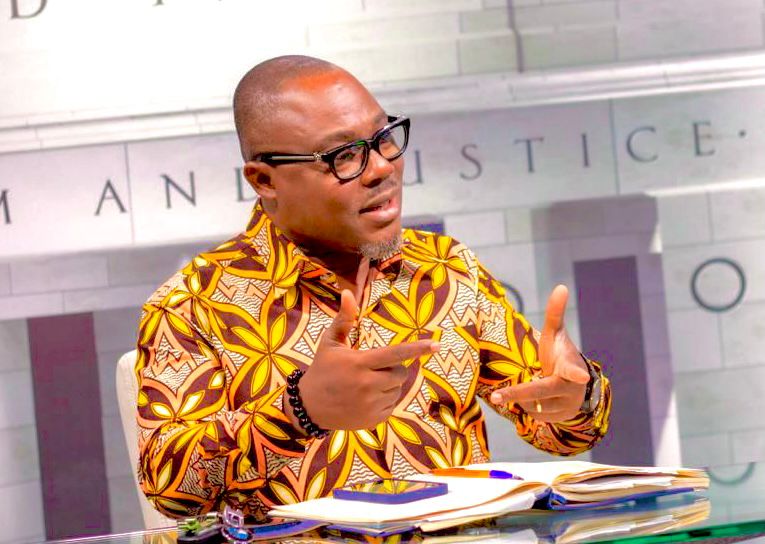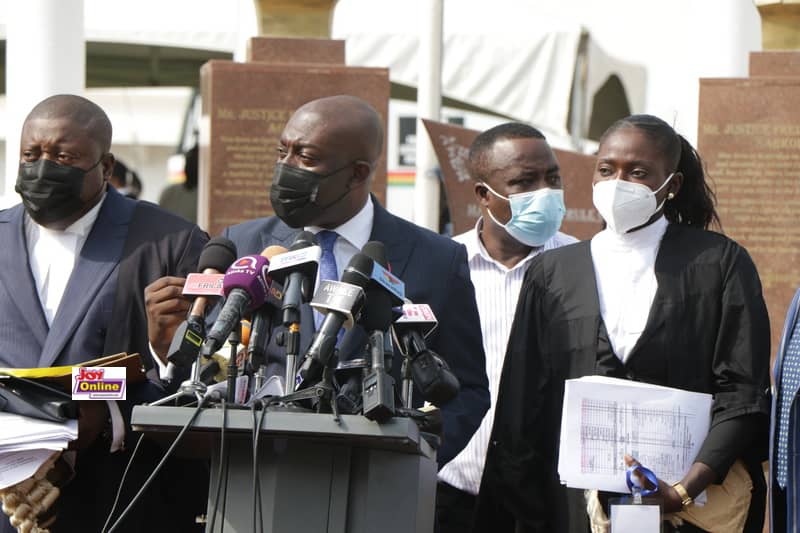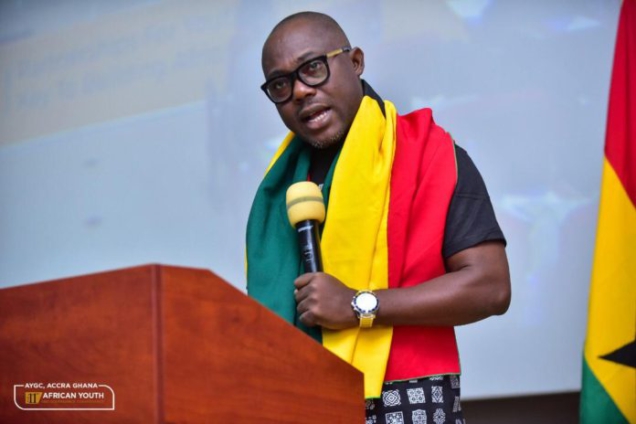A Senior Lecturer at the University of Ghana, Professor Ransford Gyampo, has opined that, the practice whereby foreign organisations conduct research on happenings in Ghana, is neocolonial and an affront to the country's sovereignty.
According to him, Ghana is an independent nation, therefore he does not understand why foreigners consistently embark on such exercises to assess the country.
Speaking in an interview with Benjamin Akakpo on the AM Show on Thursday, the political scientist stated that, as far as he is concerned, there are many credible outlets in Ghana. Therefore, it is needless for a foreign organisation to conduct research on press freedom in a sovereign state.
"My principled position has always been to be against some of these works and reports from foreigners. What is their locus in Ghana matters? And then also, who authorized them to come and conduct these studies? What is their rationale?
Doing it all the time does not mean we cannot think to advocate for a halt of their dictatorship. It is neocolonial for an independent sovereign country to always be dependent on the assessment, comments and evaluations of bodies that are found outside the confines of that sovereign state.
It doesn't help our quest to assert ourselves as a sovereign nation. You don't think that we have bodies in Ghana that can conduct tests to independently assess media freedom and press freedom in Ghana, than always rely on assessments from foreigners?", Professor Gyampo quizzed.

He also added that, "Regardless of whatever they say, my position is that foreigners have no business to come and tell us how we are faring in terms of our democracy, and in terms of our quest to promote media freedom. They should stay away. We can do that ourselves," he declared.
Professor Gyampo therefore called on the media and other relevant stakeholders, to stop placing premium on findings, which are conducted by foreign institutions. In his view, such a practice is not "nationalistic" and therefore focus should be on locally brewed content.
Touching on claims that local reports are often stained with propaganda and political manipulations, he said there are credible institutions such as the Centre for Democratic Development (CDD), that can embark on independent findings to unearth relevant developments in the country.
Professor Gyampo said he is currently embarking on a research with an organisation on Ghana's democracy. Adding that, the outcome of the findings, will speak to matters such as press freedom.
The Reporters Without Borders (RSF), a France-based NGO on Tuesday, published a report, detailing Ghana’s performance in terms of press freedom.
According to them, Ghana has dropped 30 places in the latest press freedom index put together by Reporters Without Borders for 2022.
The report, which was released to commemorate International Press Freedom Day, 2022, scored Ghana 67.43, placing the country 60th on the index that monitored 180 countries.
This ranking is the lowest the country has ever seen in the past 17 years since it placed 66th in 2005.
On the African continent, the country was ranked 10th behind a number of African countries, including Burkina-Faso which ranked 6th.
However in 2018, Ghana ranked first in Africa, a slot which is now being occupied by Seychelles.
The report also said “government has shown itself intolerant of criticism. In addition, one-third of media outlets are owned by politicians or by people tied to the top political parties. The content they produce is largely partisan”.
As part of the reasons for Ghana’s dip in the performance, the Reporters Without Borders, explained that based on its findings, journalists in Ghana do not earn decent incomes to sustain their livelihoods. The group therefore scored Ghana 47.22, in terms of the economic context of journalists.
Other indicators which were used in the computation of Ghana’s current rating included the country’s political, social, legislative and security contexts, amongst others.
Meanwhile, Minister for Information, Kojo Oppong Nkrumah has stated that, government has welcomed the report by the Reporters Without Borders (RSF), on Ghana’s press freedom, with measures to rectify the anomalies.

According to him, the report by RSF is a baseline reference document, which may be used to gauge Ghana’s press freedom in the future.
In a statement on Wednesday, the sector Minister stressed that even though the publishers called for circumspection in comparing the 2022 report to that of 2021, due to the differences in methodology, government will still consider a raft of measures to improve the country’s rating.
“The Government of Ghana in pursuance of its desire to continuously promote press freedom and the safety of journalists, intends to do the under-listed;
- Work in collaboration with the National Media Commission to deepen the execution of the Coordinated Mechanism on the Safety of Journalists.
- Collaborate with stakeholders including Civil Society Organisations in deepening education for State and non-State actors on the safety of journalists.
- To address the RFS’ concern about the poor economic conditions of most journalists in the country, government will continue engagements with media associations including media owners to improve the working and economic conditions of journalists.
- Collaborate with stakeholders in the fight against disinformation and spread of fake news”, the statement revealed.
Latest Stories
-
Africa Development Council urges ECOWAS action amid Togo’s constitutional crisis
1 hour -
Situate power sector challenges within the context of the 4th Republic – Jantuah
2 hours -
Empowering Youth through IT Education: IT For Youth Ghana College leads the way
2 hours -
Trump criminal case: Full 12-person jury seated in Manhattan
2 hours -
Israel Gaza: US again warns against Rafah offensive
2 hours -
Man arrested in Poland over alleged Russia plot to kill Zelensky
2 hours -
Over 100 arrested as US college Gaza protest cleared
2 hours -
Justmoh Construction begins work on dualization of Takoradi-Agona Nkwanta road
3 hours -
MGL visits Dumor family following passing of Mawuena Trebarh
3 hours -
In Pursuit of Peace and Unity: Interfaith Leaders Promote Dialogue – Chief Doli-Wura to Africa Union
3 hours -
TEWU raises concern over quality of food served in SHS
4 hours -
Ghanaian students gear up for Robotics World Championship
4 hours -
Political interference makes public sector managers appear incompetent – Dr Manteaw
5 hours -
Police arrest truck driver alleged to have caused train crash
5 hours -
CAF Confederation Cup: Dreams FC depart to Cairo ahead of semis first leg against Zamalek
5 hours

